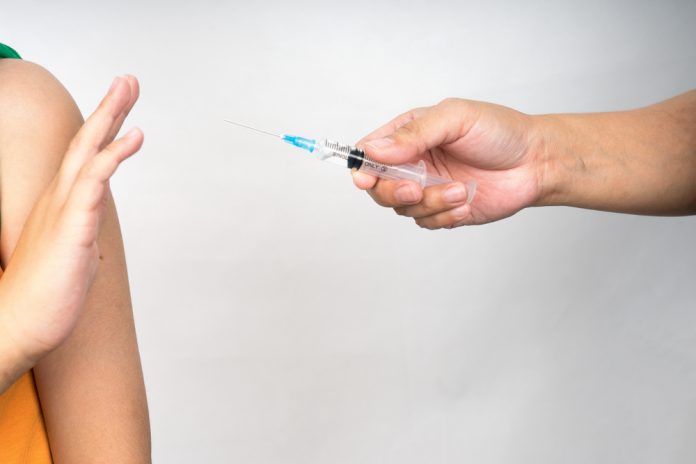The Sunshine Coast’s anti-vaccination community could prove a challenge ahead of the COVID vaccine rollout, with key pockets of the hinterland already prone to low vaccine rates.
Australian Vaccination Risks Network president Aneeta Hafemeister said many people would not get the jab because they were concerned the drugs were “experimental”.
“We have lots of questions and feel very worried; there are a lot of risks and I can’t see any benefit,” Ms Hafemeister said.
“The Sunshine Coast does have quite a community who do choose not to vaccinate and have made an informed choice not to vaccinate.”
Ms Hafemeister said she believed COVID was no worse than a “bad flu” and that people would be putting themselves at risk from the vaccine moreso than the disease.
Australia’s largest vaccine deployment in history is due to begin in February, with a free vaccine which is not mandatory.
The Sunshine Coast has historically had among the lowest childhood immunisation rates in Australia, mostly centred around the hinterland.
But the region also has a significantly high proportion of people in the high-risk category because of their age.
The Coast’s childhood vaccination rate was between 88 per cent and 91 per cent in the year to September which is below the threshold for herd immunity.
For many vaccines at least 95 per cent of the population needs to receive the vaccination to effectively stop a disease’s spread.
University of the Sunshine Coast lecturer in nursing and outbreak advisor Matt Mason said it was hard to predict the uptake of the COVID vaccines based on the region’s past experiences.
Mr Mason said he hoped the views of anti-vaccination advocates had evolved during the pandemic.
“The last 12 months may have changed people’s attitude of this disease. I think a lot of people have different beliefs and ideas than they did prior,” he said.
“We’ve seen people on the Coast who are embracing the requirements to not spread it in our community, and vaccinations are just another one of those.”
Mr Mason said public health programs would need to be put in place to encourage vaccinations and allay fears about vaccines in general.
Australian Medical Association Queensland (AMAQ) president Dr Chris Perry said conspiracy theories had been circulating about the speed at which the vaccines had been approved overseas.
“Scientists haven’t cut corners with it; it’s just that they didn’t have to go through long drawn-out bureaucratic processes,” he said.
“More than 4 million vaccines have been given to humans and by the time it gets to Australia 20 to 40 million people will have had the vaccine and we would know any complications there has been.
“There has been nothing so far so it does seem to be safe.”
Professor John Lowe, head of the school of health and behavioural sciences at the University of the Sunshine Coast, said the region had many people classed as “vulnerable” to COVID-19 because of their age and it was important to get as many inoculated as possible.
“With the high-risk groups we are expecting a high uptake. We need to target at-risk groups. That needs to be the priority,” he said.
Professor Lowe urged people to “put their anti-vaccination views aside and just get vaccinated, not just for ourselves but for others”.
Acting Prime Minister Michael McCormack said the vaccine rollout was still on track to begin next month and was the “light at the end of the tunnel”.
The program will begin with aged disability care residents and workers, frontline healthcare workers and quarantine and border workers in the first phase.
Next will be the seniors aged 70 to 79, Aboriginal and Torres Strait Islanders over 55 years old, young people with underlying health conditions and high-risk workers such as emergency services and meat processors.
They will be followed by adults aged 50 to 69, Aboriginal and Torres Strait Islanders aged 18 to 54 and other high risk workers.
Finally the remainder of the adult population will comprise the bulk numbers of people getting vaccinated, followed by children under 18 if recommended.
Vaccines will initially be distributed at major hubs such as the Sunshine Coast University Hospital plus in residential aged care and disability care facilities.





